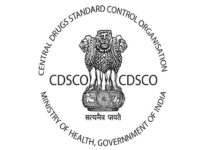A novel study by researchers at Uppsala University as well as its hospital has shown that men who happen to have a neurodevelopmental disorder like autism or ADHD have a higher risk of show this kind of link.
It has been penned in the British Journal of Cancer. It is well to be noted that testicular cancer happens to be the most common of all cancers among young men, and what it is caused by is still not known. As per Ingrid Glimelius, the Department of Oncology’s senior consultant at the Uppsala Hospital and also a professor at Uppsala University, testicular cancer can very well be surgically removed, thereby curing the disease. It is, however, very important to seek care without delay if any kind of lump is felt inside the testicle.
The novel research focused on patients who had testicular cancer across Sweden. 6,166 individuals were included in the research and were compared to 61,660 age-matched men who did not have testicular cancer. Notably, medical register data was used to investigate if psychiatric diagnoses before cancer diagnoses happened to be more common in patients who had testicular cancer in the control group.
Generally put, the scientists did not find any elevated risk of testicular cancer in patients who had psychiatric diagnosis; that said, the group with neurodevelopmental disorder in particular saw a prominent rise in the risk of having seminoma-type testicular cancer.
While the researchers did find that there was an elevated seminoma risk in people with neurodevelopmental disorders, absolute risk surge was lower than 1%. This puts light on the fact that the testicular cancer risk is still very low in boys and men who are suffering from conditions such as autism as well as ADHD. There is indeed no need to feel the pinch if one has these diagnoses.
That said, the results happen to be intriguing when it comes to attempts to get closer to discussing mechanisms concerning the occurrence of testicular cancer.
As per Anna Johnson, an Uppsala University doctoral student as well as a physician at the hospital, they also saw that people with past psychiatric evaluations had a higher risk of succumbing to testicular cancer as compared to people who did not have a prior psychiatric diagnosis. That said, the testicular cancer survival rate was pretty good in both groups.
Apparently, this is the first research study that provides a link between testicular cancer risk and neurodevelopmental disorders. Prior to this, the risk factors included having an undescended testicle as a kid or having a brother or father who were suffering from testicular cancer.
Johnson continues that they really do not know why a link is observed between neurodevelopmental disorders and testicular cancer; however, they do believe that early life events, perhaps as early as the foetal stage, do have an impact.
As per Glimelius, since there is a reduced survival rate in people with mental health issues, it is indeed significant for the healthcare system, the individuals, and their families to be very well aware that they might as well get affected due to another illness. He further says that treatment must be sought if a lump is felt inside the testicle and that this disease can be cured in most people today.


















